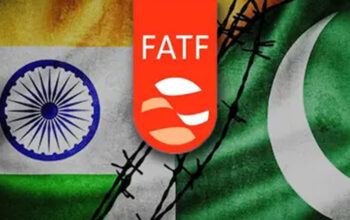By Staff Reporter
ISLAMABAD: A Senate committee on Sunday shot down a Federal Board of Revenue (FBR) proposal that would have let tax officials arrest suspected fraudsters during investigations without court approval.
Instead, the committee, chaired by Senator Saleem Mandviwalla, demanded clear threshold and structured slabs to govern arrests in tax fraud cases, with penalties including up to ten years in prison for severe offenses.
The decision came during a meeting convened to scrutinize budgetary proposals tied to sales tax laws, where the committee voiced strong opposition to the FBR’s push for expanded arrest powers. Once allowing Assistant Commissioners to detain suspects with material evidence, the clause now requires a prior inquiry and Commissioner approval.
Minister of State for Finance Bilal Azhar Kiyani defended the tweak as a shield against arbitrary arrests. “We’re refining how arrests happen in tax fraud cases,” he told the committee. Under current rules, an Assistant Commissioner can nab suspects believed to have dodged taxes or committed prosecutable offenses. The new bill mandates Commissioner approval before an inquiry begins, a curb on FBR authority, Kiyani said.
The FBR had suggested setting a Rs 10 million threshold as the maximum limit for authorizing arrests in tax fraud cases. But FBR Chairman Rashid Mehmood Langrial took a harder line, insisting that “tax fraud cannot be tolerated at all,” regardless of the amount involved. His stance fueled a heated exchange with senators over whether arrests should occur during the inquiry phase or only after an investigation concludes.
Senator Farooq H. Naek of the Pakistan Peoples Party (PPP) was the vocal critic, saying “only a court of law can authorise the arrest of a person accused of tax fraud.” Under existing rules, FBR officials can detain suspects during the inquiry stage, but the Finance Bill proposes shifting arrests to the investigation phase, post-inquiry.
Naek argued this still granted excessive power, drawing parallels to the National Accountability Bureau (NAB) law, which was amended to curb arrests during inquiries after similar concerns.
“We have documented video proofs,” he said, revealing that influential figures, including a former senator, were implicated in such schemes. He cited a case involving a former Pakistan Customs official—now in FBR custody—who allegedly guided a shoe manufacturer to dodge millions in sales taxes. “Individuals involved in fraud of Rs 1 billion or more deserve arrest,” Langrial argued.
The bill lays out tough penalties: 10 years in prison and fines matching the fraud amount for cases topping Rs 10 million. Fake invoice peddlers would be branded tax fraudsters, with special judges tapped to rule.
“If anyone steals a motorcycle, it becomes a cognizable offense, but the Parliamentary Committee is asking not to arrest anyone involved in tax fraud worth millions or billions of rupees,” Langrial said.
The committee, however, proposed its own framework, recommending five years in prison for tax fraud up to Rs 1 billion and ten years for amounts exceeding that.
Amid the back-and-forth, Langrial hinted at flexibility, and defiance also, stating that if the panel rejected the proposed safeguards, the FBR would stick with its current powers.
Facing sustained pushback, the committee directed the FBR to consult the Attorney General and Finance Minister and return with revised proposals. Langrial acknowledged the concerns, promising a redraft. “We’ll review this again and bring a revised version by tomorrow,” he assured the panel.
The FBR’s broader agenda also drew scrutiny. It has sought sweeping powers to seal business premises, seize movable property, or appoint receivers for those dodging sales tax registration, alongside barring bank operations and property transfers for non-registrants. Langrial tempered these proposals, pledging that no such actions would proceed without a public hearing involving tax officials and business chamber representatives.
Copyright © 2021 Independent Pakistan | All rights reserved




